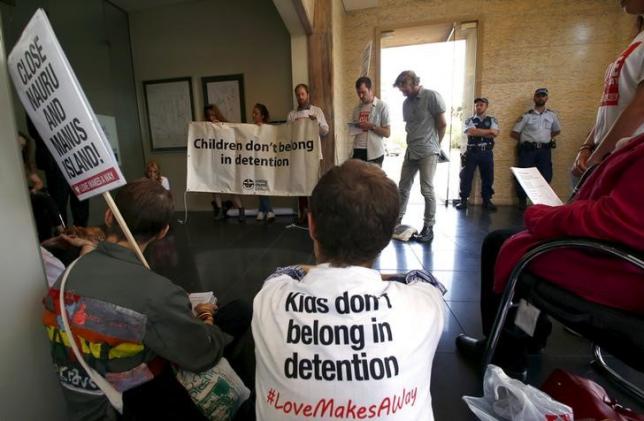EU observers say Guinea vote valid; opposition protests
CONAKRY: European Union observers gave Guinea's presidential elections a clean bill of health on Tuesday despite protests by opposition supporters who accuse President Alpha Conde of rigging the vote to win a second term.
The EU observer team said that logistical problems including lack of voting materials and the late opening of polling stations did not mar the overall outcome of Sunday's ballot in Guinea, which is Africa's largest bauxite producer.
Early results announced by radio stations showed Conde with a sizeable lead. Official figures are not expected until the end of the week. Opposition leaders on Monday rejected the results and called for the ballot to be reorganised.
After nightfall, residents in outlying neighbourhoods of Conakry, the coastal capital, reported hearing gunfire following clashes between security forces and opposition supporters.
"There is shooting here," said Fatoumata Bah, a resident of the Simbayah district. "I don't know how we will get any sleep."
In the Koloma neighbourhood, resident Souleymane Timbi Bah also reported shots after police pursued opposition demonstrators into the warren-link back streets. He said it was not clear who was shooting.
Police had earlier used tear gas and baton charges to disperse dozens of young opposition supporters who had burned tires and erected barricades in the street.
The head of the EU observer mission, Frank Engels, said nearly two-thirds of polls opened late on Sunday because of insufficient materials and some did not receive voting booths at all, but representatives of the political parties were in most locations and counts were mostly transparent.
"What I saw in terms of insufficient (voting material), lack of preparation and logistical and practical difficulties at the polling stations does not mar the validity of the election," Engels said.
Guinea has a history of political violence, including at the 2010 election that brought Conde to power. On Friday, two people were killed and at least 33 were injured in clashes between Conde supporters and those of the main opposition leader Celloun Dalein Diallo.
Engels's comment was echoed by the head of the African Union monitoring group, which said the election was transparent despite some organisational difficulties.
All seven opposition candidates, including Diallo, called on Monday for the results of the election to be scrapped due to fraud.
Conde's victory in 2010 - in Guinea's first democratic elections since independence from France in 1958 - ended two years of military rule, but was rejected by Diallo as fraudulent.
In a possible sign of division within the opposition, the deputy head of Diallo's UFDG party, the largest opposition group, said on Tuesday it was too early to reject the election before the official results had been announced.






